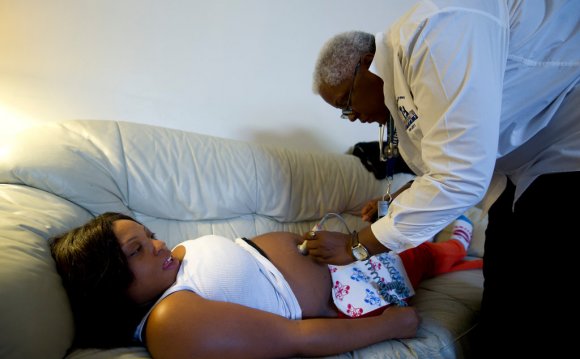
Comfort care nursing home Central America
Spanish.
LA - When Gil García García started to feel a sharp pain inside the left-foot, he didn’t believe it was crucial.
"a couple of weeks later on, i possibly could not go. We required help get up. I'd a continuing and bad hassle, " García recalled in a quiet sound, today with little to no power.
In October he had been hurried to a medical center er on University of California, Davis. The analysis had been devastating: cancer of the skin, or melanoma, which had invaded their head, lung area, tummy and left leg.
Facing an incurable illness
Like many undocumented immigrants with worked forever within nation, García encountered a problem as he ended up being clinically determined to have an incurable disease.
They frequently have no idea whether or not to remain in the U.S. for the limited crisis hospital treatment allowed provided their particular immigration status, or go back to their home country to pay the final stage of the life with family who they often times have not seen for decades.
"I have maybe not seen my four young ones for two decades, " said García, now age 62. He originated in Cuernavaca, Mexico in 1994 to exert effort in Ca.
"we worked difficult as an assistant building employee plus landscaping. We needed to deliver cash for my children’s knowledge in Mexico. That’s the reason why I arrived, " he explained.
His niece, Fatima García, a dreamer, protects him day and night. She has taken the part of a nurse at home and it is the actual only real family members he has got in america. Due to the severity of the woman uncle’s health, she explained, they attempted to get a humanitarian visa so some of kids in Mexico could visited see him.
"Now we are thinking it might be an improved concept to take him to Mexico, ” Fatima said. “But he's concerned because he understands that if he gets far worse, because of his immigration standing, he may not get back for medical care.”
She added, “Also, he has large hopes of seeing his young ones again. A humanitarian visa does not allow these visit the U.S."
Garcia surely could receive health care bills through the Medi-Cal program, California’s name for Medicaid if you have reasonable earnings. Fatima explained that her uncle skilled the program because he could be jobless and very ill. “he's gotn’t committed fraud, or any offense. That is why he might get health care bills without charge, " Fatima proceeded.
But as a patient with a terminal infection, he was perhaps not supplied palliative take care of those at the conclusion of life. She hadn't heard of this rising types of attention, which gets better dying customers’ quality of life by managing their pain and signs, such as for example nausea, whilst offering treatment as required. Palliative attention should start ahead of when hospice care, which offers just convenience in last six months of life.
Sadly, Gil Garcia Garcia could not accomplish his final want to return to Mexico and find out his children. He died before Christmas in Sacramento, Calif.
In a 2012 brand new England Journal of medication article, “Home: Palliation for Dying Undocumented Immigrants, ” Ricardo Nuila, MD, of this Baylor College of medication in Houston, Tx, blogged that “for numerous undocumented immigrants, terminal infection is a revolving home.”
He went on, “They tend to be admitted through the emergency department with serious pain or organ failure. We stave off demise sufficiently to allow them to be released, and very quickly, they return-until your day they don’t.”
But there are lots of exclusions.
Sometimes Nuila and his staff can place undocumented clients in hospice solutions, because nonprofit hospices must definitely provide altruistic treatment, “but for many we don't, ” he stated.
Mental stress and suicidal thoughts
Nuila revealed, “Many times the undocumented clients sustain the maximum amount of psychologically out of this procedure as they do literally.”
One of his clients, whom he identified only as “Cifuentes, ” a Honduran with stage IV belly disease, survived despite three different rounds of chemotherapy and gastrectomy.
"once i admitted him a third amount of time in two weeks for renal failure, he asked basically might administer a much bigger dose of morphine to destroy him, " the physician recalled. Physician-assisted suicide is certainly not appropriate in Texas, and also in Oregon and Washington State in which the option may be available, the principles allow it only in limited instances.
Nuila spoke with Cifuentes about what he could do, such as for instance seek convenience care in hospice and declare in an advance healthcare directive that medical staff perhaps not restore him in disaster situations, if he couldn't communicate.
Nevertheless the medical practitioner stated this left him “feeling disingenuous, since I have knew exactly what would occur: Our personal worker would talk to him, remove a functional telephone number and promise to phone if a hospice place opened. He asked to be released and requested different things.”













